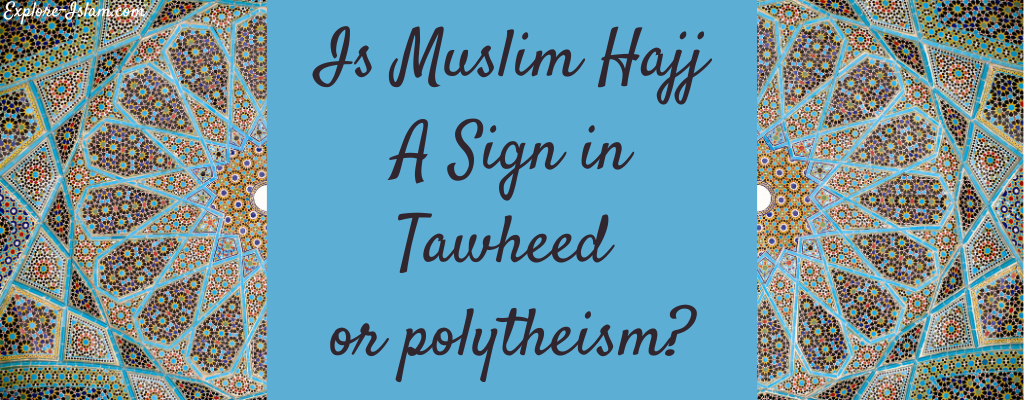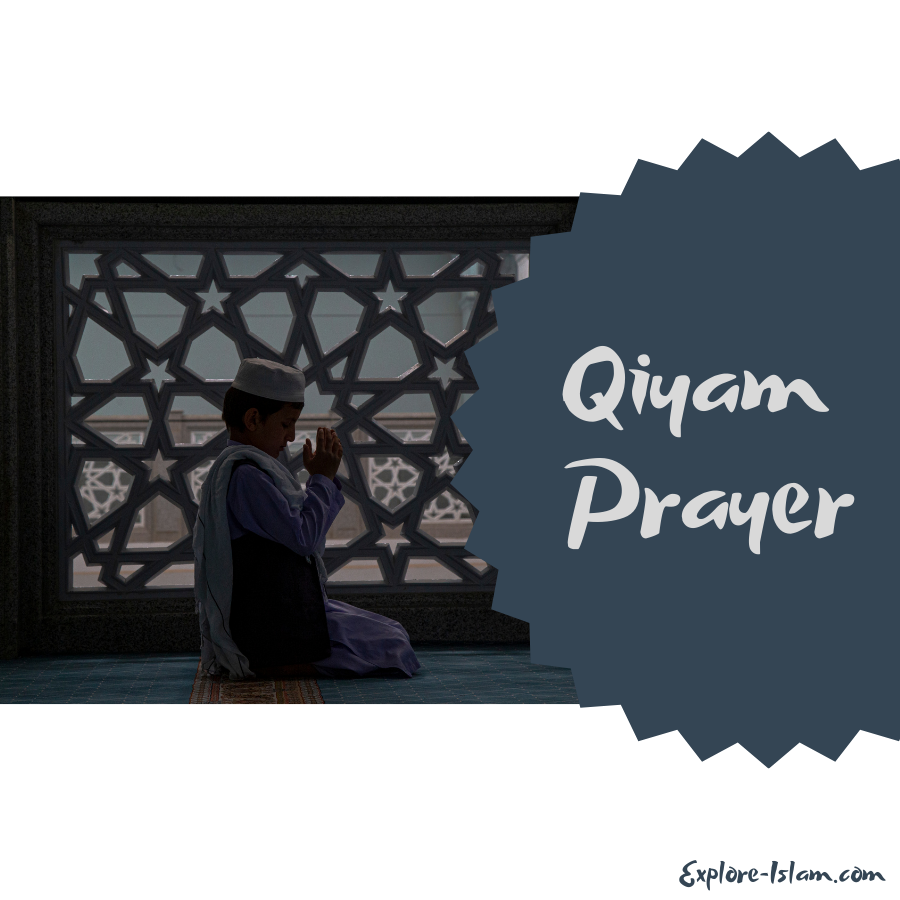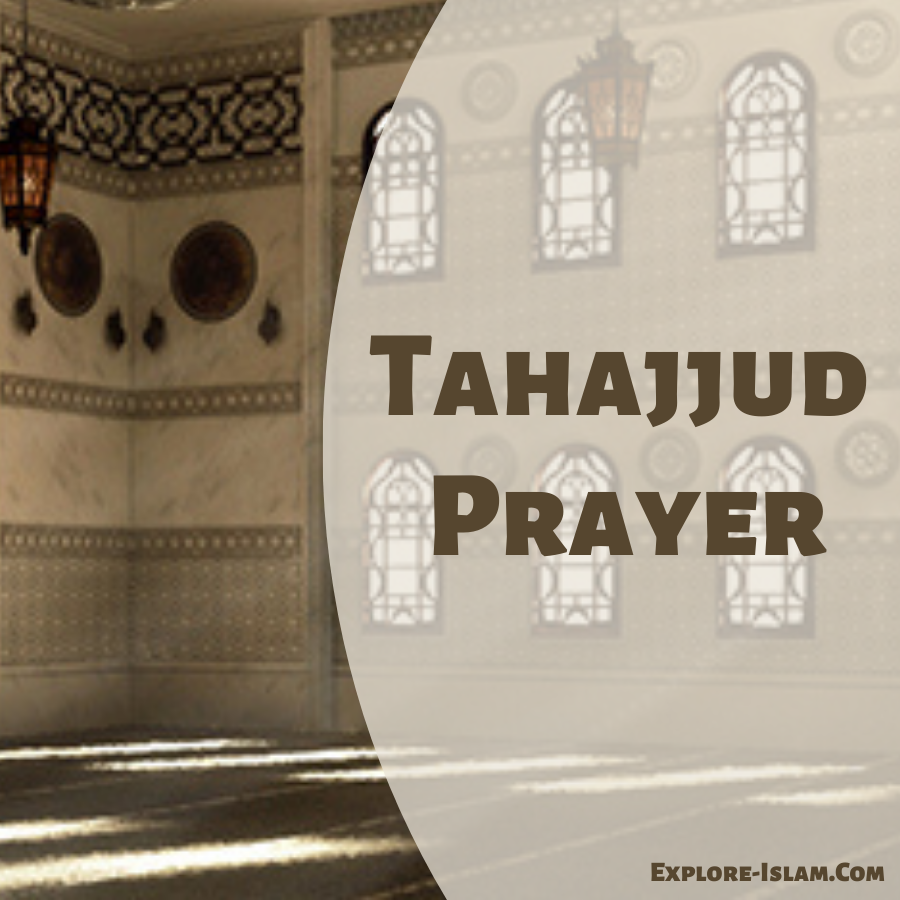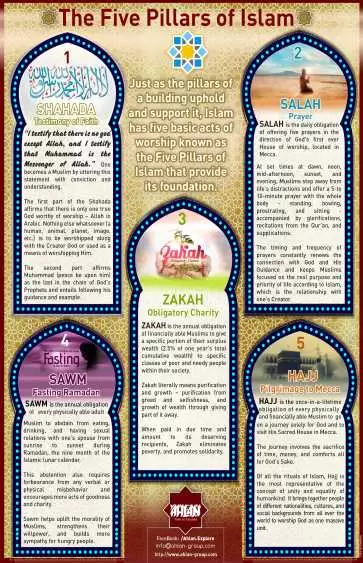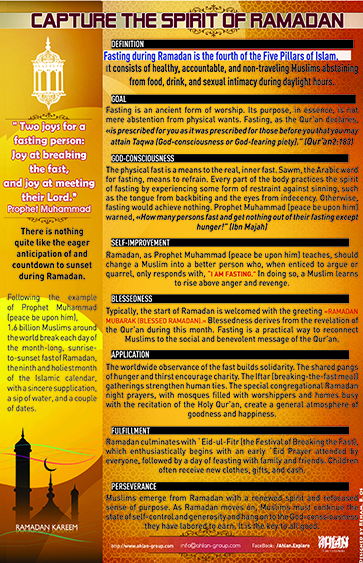Hajj starts from the Muslim’s inner feelings and reaches his outer behavior. Tawheed is manifested in the primary condition of the hajj, its destination, rituals, and related acts of worship and supplications. Thus, there is no wonder that the reward of the accepted Hajj is forgiving all past sins and Jannah (paradise) in the hereafter.
Here we will learn the following:
What is Hajj?
Hajj is the fifth pillar of Islam. The word Hajj means to “intend to journey to”, so, Hajj is both a physical and spiritual journey aiming to purify and improve the Muslim’s life and the afterlife.
Read: the Importance of Hajj in Islam.
Hajj (Islamic pilgrimage) is one of Islam’s most publicized obligations, the last between them to be ordained, and it is to be obligatorily performed once in a lifetime by each capable Muslim, but they can still perform it optionally afterward whenever they want. Do you want to learn more about the relationship between Tawheed and Hajj? Keep going.
What Is the Meaning of Tawheed?
Tawheed or monotheism means to believe in the Only One True God (Allah).
It’s transilitration is: la ilaha illa Allah. Thus, it’s the gateway to becoming a Muslim, followed by believing in Prophet Muhammad (peace and blessings be upon him) as the last Messenger of Allah Almighty.
The significant Arabic word that you need to reflect on in our context here is the word Ilah (God). The root of this Arabic word mainly refers to sincere love, majesty, hope and fear. Thus, a true Muslim frees his destination from his self-desires as well as that of others.
Islam is basically built on Tawheed. This implies that all your deeds shall be for God’s sake to be accepted. You can’t be a Muslim without accepting this truth.
Indeed, all five Islamic pillars target this goal: to unify your destination. It’s to believe in Allah (the Only One God) and His Messenger, Muhammad, to pray for Allah five times daily, to pay poor dues (Zakah) for the sake of Allah, to fast in Ramadan, and finally to perform Hajj to Allah’s House in Makkah. Thus, the meaning of tawheed is reflected in the journey of the hajj.
Read: Do Muslims Worship the Kabba?
How Tawheed Is Manifested in Hajj Rituals?
Tawheed (monotheism) is clearly illustrated in hajj rituals through the primary condition of hajj, the places of performing the rituals, the founder of the Sacred House, Abraham (peace be upon him), and the supplications said during the hajj rituals.
1. Tawheed is a must to be able to perform hajj.
Prophet Muhammad (peace and blessings be upon him) emphasizes this fact by saying:
“ أَلاَ لاَ يَحُجُّ بَعْدَ الْعَامِ مُشْرِكٌ، وَلاَ يَطُوفُ بِالْبَيْتِ عُرْيَانٌ ”.
In the year prior to the last Hajj of the Prophet (ﷺ) when Allah’s Messenger (ﷺ) made Abu Bakr the leader of the pilgrims, the latter (Abu Bakr) sent me in the company of a group of people to make a public announcement: ‘No pagan is allowed to perform Hajj after this year, and no naked person is allowed to perform Tawaf of the Ka`ba.’
[ Sahih al-Bukhari 1622]
Moreover, no act of worship is valid in Islam without pure intention for the sake of Allah. Thus, the pilgrim’s intention has to be for the Creator solely. Indeed, it is the same concept of tawheed, i.e., to worship only Allah, the One True God.
2. The pilgrim’s main destination is the Sacred House.
The Sacred House placed in Makkah is the slogan of tawheed on earth. It is the direction of prayer for Muslims whose belief is built on tawheed. Most importantly, this Sacred House is established by Prophet Abraham (PBUH) by Allah Almighty’s order mentioned in the following verse:
وَإِذْ بَوَّأْنَا لِإِبْرَٰهِيمَ مَكَانَ ٱلْبَيْتِ أَن لَّا تُشْرِكْ بِى شَيْـًۭٔا
“And ˹remember˺ when We assigned to Abraham the site of the House, ˹saying,˺ “Do not associate anything with Me ˹in worship˺ and purify My House for those who circle ˹the Ka’bah˺, stand ˹in prayer˺, and bow and prostrate themselves.”
[Quran, 22:26] (English translation of meaning)
Read: Is Kabba an Idol?
3. Prophet Abraham, the role model of tawheed, called for the pilgrimage.
Tawheed is highly reflected in the leader who established the place of the pilgrimage and call for it, obeying Allah’s order to him:
وَأَذِّن فِى ٱلنَّاسِ بِٱلْحَجِّ
“Call ˹all˺ people to the pilgrimage.”
[Quran, 22:27]
It was said that Ibrahim said: “O Lord, how can I convey this to people when my voice will not reach them” It was said: “Call them and We will convey it.” So Ibrahim stood up and said, “O mankind! Your Lord has established a House so come on pilgrimage to it.”
Indeed, Prophet Abraham (PBUH) is the father of the Prophets (PBUT) and he has a special rank for Muslims, Jews, and Christians. His belief is tawheed, as Allah says in the Noble Quran:
مَا كَانَ إِبْرَٰهِيمُ يَهُودِيًّۭا وَلَا نَصْرَانِيًّۭا وَلَـٰكِن كَانَ حَنِيفًۭا مُّسْلِمًۭا وَمَا كَانَ مِنَ ٱلْمُشْرِكِينَ
“Abraham was neither a Jew nor a Christian; he submitted in all uprightness and was not a polytheist.”
[Quran, 3:67]
4. Talbiyah is the devotional prayer of tawheed in hajj.
One of the significant prayers that the pilgrims say is the talbiyah:
فَلْيَرْفَعُوا أَصْوَاتَهُمْ بِالتَّلْبِيَةِ فَإِنَّهَا مِنْ شِعَارِ الْحَجِّ.
The Messenger of Allah (ﷺ) said:
“Jibril came to me and said: ‘O Muhammad! Tell your Companions to raise their voices when reciting the Talbiyah, for it is one of the symbols of Hajj.’”
[Sahih sunan Ibn Majah 2923]
Talbiyah transliteration is: Labbayk-Allāhumma labbayk, labbayka lā sharīka laka labbayk, inna ‘l-ḥamda, wanni`mata, laka wa ‘l-mulk, lā sharīka lak.
Talbiyah words mean: “I am here at Your service, O Allah, I am here at Your service. I am here at Your service, You have no partner, I am here at Your service. Surely the praise, and blessings are Yours, and the dominion. You have no partner.”
[Hadith by Bukhari & Muslim]
The Arabic words Labbayk-Allāhumma labbayk here imply those meanings related to tawheed:
- I submit and submit again,
- I am persisting in obeying You,
- I confirm my love of Allah,
- It implies sincerity,
- It implies drawing close to Allah.
- It is a symbol of tawhid.
(Meaning of Labbayk Allahumma Labbayk, islamqa.info 2003)
5. Tawaf and its related worships illustrate tawheed.
Tawaf or circumambulation of the Ka`bah, whether it is of visiting, arrival or farewell, is one of the hajj rituals that illustrate tawheed:
طَافَ النَّبيُّ صلى الله عليه وسلم بِالْبَيْتِ عَلَى بَعِيرٍ كُلَّمَا أَتَى الرُّكْنَ أَشَارَ إِلَيْهِ بِشَيْءٍ عِنْدَهُ وَكَبَّرَ
The Prophet (ﷺ) performed Tawaf riding a camel. Every time he passed the corner (containing the Black Stone), he would point to it with something that he was holding and say: Allāhu Akbar (Allah is the Most Great)!
[Al-Bukhari]
Also, tawheed is illustrated after tawaf when the person offers two rak’ahs behind Maqam Ibrahim, if possible. If he cannot do that then he may offer the prayer in any other part of the mosque. In this prayer, he is recommended to recite chapter al-Ikhlas (purity of devotion) and al-Kaferron (the disbelievers), so that the Muslim reminds himself of the tawheed concept, i.e. pure devotion to Allah Almighty and to ensure that one’s worship is free of any trace of associating partners with Allah Almighty.
Moreover, if the Muslim who performs tawaf is able to kiss the Black Stone, then he is recommended to do so. This also shows devotion and submission to Allah Almighty:
وَإِنِّي لَأَعْلَمُ أَنَّكَ حَجَرٌ مَا تَنْفَعُ وَلَا تَضُرُّ وَلَوْلَا أَنِّي رَأَيْتُ رَسُولَ اللَّهِ صَلَّى اللَّهُ عَلَيْهِ وَسَلَّمَ يقبل مَا قبلتك
‘Abis b Rabi’a said he saw ‘Umar kissing the stone and saying, “I know for sure that you are a stone which can neither benefit nor injure, and had I not seen God’s Messenger kissing you I would not have kissed you.”
[Agreed upon]
Read: Do Muslims worship the Black Stone?
6. Sa’i between Safa and Marwa hills reminds the Muslims of tawheed.
Walking Back And Forth seven times between the hills of Safa and Marwa illustrates tawheed through:
A. the supplications that the pilgrim is recommended to say the same as Prophet Muhammad (PBUH) did:
Whenever the Prophet (ﷺ) approached Mount Safa, he would recite:
Surely Safa and Marwah are among the signs of Allah. I begin by that which Allah began. He began (his Sa’y) at Mount Safa climbing it until he could see the House. He then faced the Qiblah repeating the words: There is none worthy of worship but Allah, and Allah is the Most Great….”
[Muslim 2/888.]
B. the remembrance of the effort of Hajar, Prophet Abraham’s wife, who put her trust in Allah only while searching for water to save her son in the desert.
Read this article if you want to learn more about Hajar story and her son, Prophet Ishmael (PBUH): The Story Of Prophet Ismail In Islam – Full Guide
7. The day of Arafat is the best time for declaring the word of tawheed.
Arafat day is a special day for Muslims since “there is no day when God sets free more servants from hell than the day of ‘Arafa.” Prophet Muhammad (PBUH) stated the virtue of Arafat day saying:
“The best invocation is that of the Day of Arafat, and the best that anyone can say is what I and the Prophets before me have said:
None has the right to be worshipped but Allah Alone, Who has no partner. His is the dominion and His is the praise, and He is Able to do all things.”
[At-Tirmidhi. Al-Albani graded it good in Sahih At-Tirmidhi 3/184]
8. Rami of the Jamarat (stone-throwing) is legislated for remembering Allah Almighty.
The Pilgrims throw pebbles at the point of Satan disgracing him and reciting Takbeer on throwing every pebble.
Also, Prophet Muhammad (PBUH) stated the purpose of this hajj ritual saying:
“ إِنَّمَا جُعِلَ رَمْىُ الْجِمَارِ وَالسَّعْىُ بَيْنَ الصَّفَا وَالْمَرْوَةِ لإِقَامَةِ ذِكْرِ اللَّهِ ”
The Prophet said: “Stoning the Jimari [stone-thowing] and Sa’i between As-Safa and Al-Marwah are only done for the establishment of Allah’s remembrance.”
[Jami` at-Tirmidhi; graded as good hadith]
What Is the Purpose of Hajj?
The main target of the Islamic pilgrimage (Hajj) is to prepare the Muslim for unifying his destination towards His Creator only (Tawheed), the cornerstone of the belief.
The primary purpose of hajj is to establish tawheed in the heart of those who perform it so that all their sins are forgiven:
The Messenger of Allah (ﷺ) said, “Whoever performs Hajj (pilgrimage) and does not have sexual relations (with his wife), nor commits sin, nor disputes unjustly (during Hajj), then he returns from Hajj as pure and free from sins as on the day on which his mother gave birth to him.”
[Agreed upon]
Also, among the purposes of the hajj is to seek Allah’s rewards for their efforts and obedience, and Allah’s pleasure as well. In other words, Hajj is for remembrance of Allah, achieving Taqwa (Piety). That is what a pilgrim comes back to bear.
In short, Hajj is a sign of total submission and obedience to Allah, and a turning point in a Muslim’s life.
Read this article for more about Hajj: what, when, where, how and why?
Bear the same fruits of Hajj!
To conclude, do you want to bear the same fruits that the pilgrims have? I have good news for you!
You have a golden chance to say the word of Tawheed and become a Muslim. By becoming a Muslim, your sins are forgiven, you come closer to your Creator, and reach the straight way of guidance to go through; the same fruits that the pilgrim bears. Wait for what? Our team can help you. Become a Muslim now. Life is too short!
Available in These Languages:

